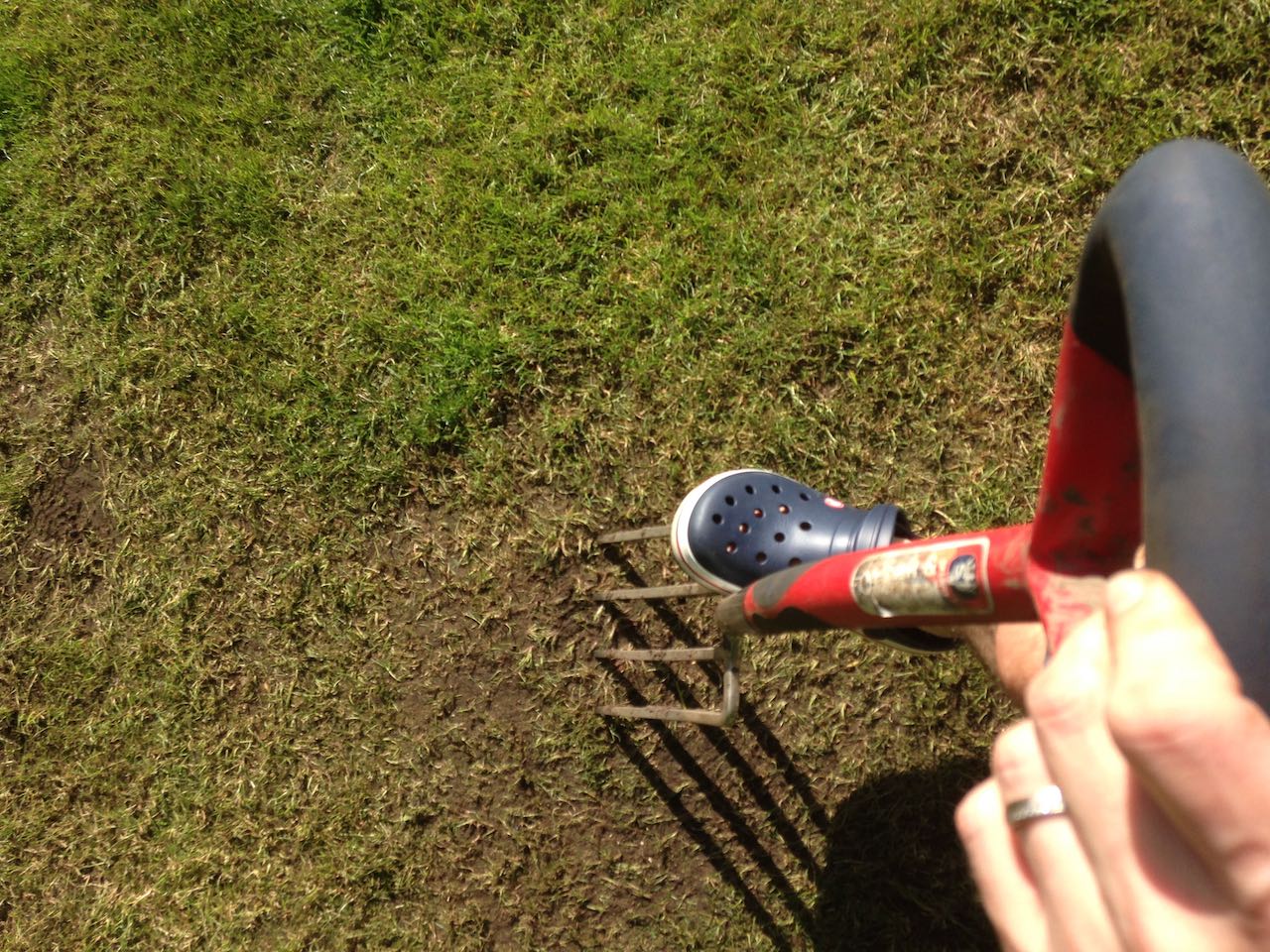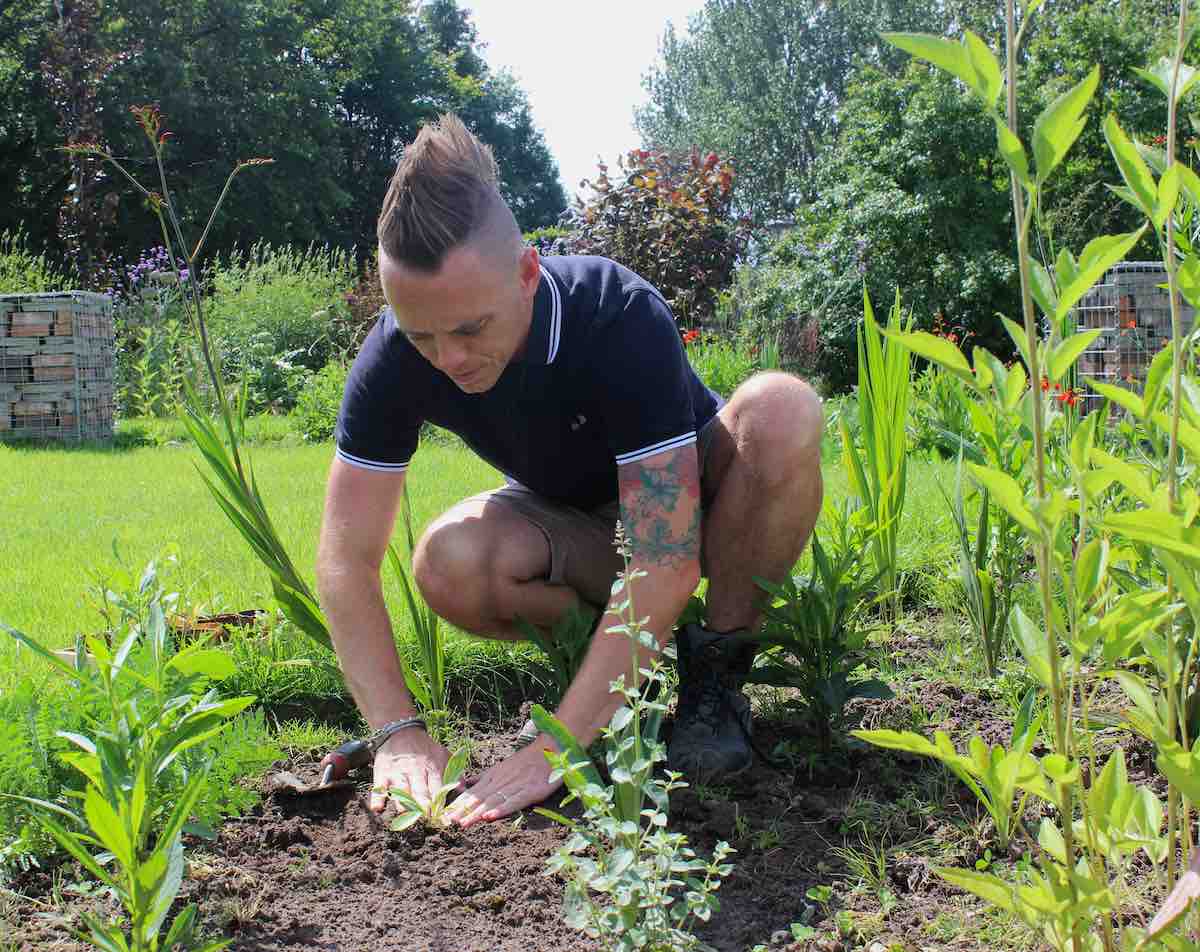Hi @nils
Thanks for getting in touch about your lawn niggles. It's a common question with lumpy bumpy lawns.
The first thing to note is that worm casts are a great sign of soil health. It means there's plenty of life in the soil. The big niggle is excessive worm casting which can be caused by ground that's too damp, so the worms are literally coming to the surface to prevent themselves from growing. This can happen on new build gardens or recently renovated ground where over time compaction or excessive hard core can mean that water pools in lawns and flower beds as a means of escape.
This may be why there are some settlement issues and lump and bumps also. Though saying that, the lawn looks in fair nick!
You could use a lawn roller to help smooth this out, but if there are issues around drainage, it will soon come back. I think what may be best for you is to mow it relatively short, say a setting 3 and then aerate the lawn with a hollow tine aerator. You can either buy a manual one or rent a powered one. Looking at the size of your lawn, a manual one would do this with half a day's effort. Then use the plugs that come out as a soil improver for the rest of the flower beds.
You can also use a fork but it's less effective.

If you do find really squelchy sodden ground its a sign that it needs proper drainage, which isn't a quick fix in most cases.
What I have done in this case with newly landscaped ground is find the lowest point of the lawn and then doing down by 2 ft and add some grit and organic matter as a mini soak away, often digging through a foot of clay to get there. It's hard work but stops you needing to completely lift the lawn.
But worm casts are a sign there is life and I'd aerate to hopefully sort the drainage and lumpy nature out.
Let us know how you get on!
Lee
Hi @nils
Thanks for getting in touch about your lawn niggles. It's a common question with lumpy bumpy lawns.
The first thing to note is that worm casts are a great sign of soil health. It means there's plenty of life in the soil. The big niggle is excessive worm casting which can be caused by ground that's too damp, so the worms are literally coming to the surface to prevent themselves from growing. This can happen on new build gardens or recently renovated ground where over time compaction or excessive hard core can mean that water pools in lawns and flower beds as a means of escape.
This may be why there are some settlement issues and lump and bumps also. Though saying that, the lawn looks in fair nick!
You could use a lawn roller to help smooth this out, but if there are issues around drainage, it will soon come back. I think what may be best for you is to mow it relatively short, say a setting 3 and then aerate the lawn with a hollow tine aerator. You can either buy a manual one or rent a powered one. Looking at the size of your lawn, a manual one would do this with half a day's effort. Then use the plugs that come out as a soil improver for the rest of the flower beds.
You can also use a fork but it's less effective.

If you do find really squelchy sodden ground its a sign that it needs proper drainage, which isn't a quick fix in most cases.
What I have done in this case with newly landscaped ground is find the lowest point of the lawn and then doing down by 2 ft and add some grit and organic matter as a mini soak away, often digging through a foot of clay to get there. It's hard work but stops you needing to completely lift the lawn.
But worm casts are a sign there is life and I'd aerate to hopefully sort the drainage and lumpy nature out.
Let us know how you get on!
Lee
 Lee Burkhill: Award Winning Designer & BBC 1's Garden Rescue Presenters Official Blog
Lee Burkhill: Award Winning Designer & BBC 1's Garden Rescue Presenters Official Blog



